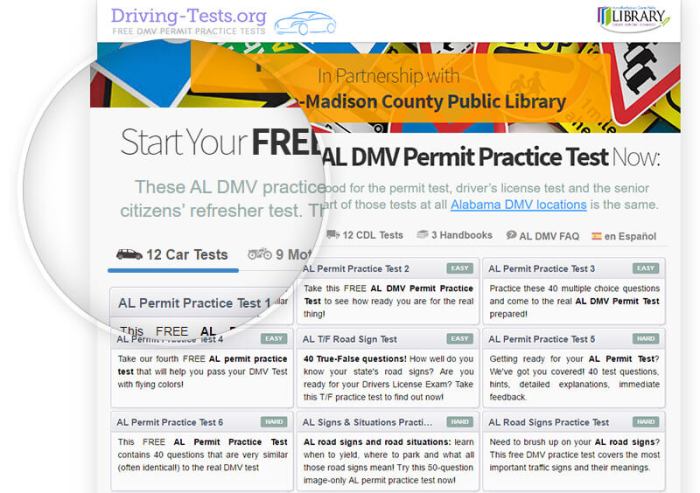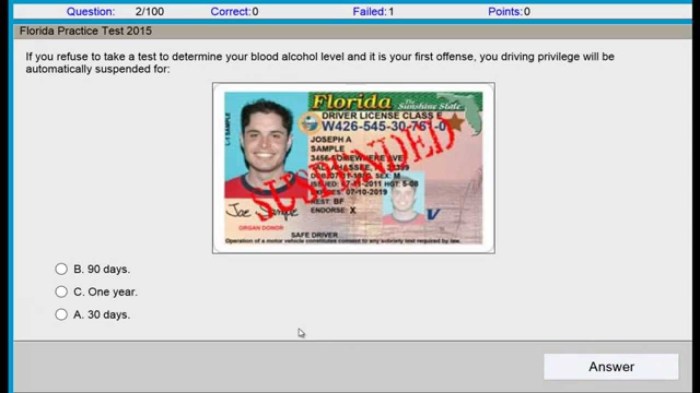Conquer the final exam in Drivers Ed with our comprehensive guide, “Final Exam Drivers Ed Answers.” Prepare effectively, manage exam anxiety, and ace the test with our expert tips and strategies.
From understanding the exam format to mastering key concepts and practicing with sample questions, we’ve got you covered. Get ready to excel in your Drivers Ed final exam and secure your driving license with confidence.
Understanding Final Exam Drivers Ed Answers
Preparing for the final exam in Drivers Ed is crucial for obtaining a driver’s license and ensuring road safety. Effective study habits, including reviewing course materials, practicing sample questions, and seeking clarification from instructors, enhance knowledge retention and boost confidence.
It’s understandable that you might be feeling overwhelmed with your final exam drivers ed answers. Instead of getting bogged down, why not take a break and check out this awesome too busy getting buckets svg ? It’s sure to put a smile on your face and help you relax before getting back to studying.
When you’re ready, you can confidently return to your final exam drivers ed answers and ace that test!
Tips for Effective Study Habits
- Review course materials regularly, including textbooks, notes, and online resources.
- Practice answering sample questions and mock exams to identify areas for improvement.
- Seek clarification from instructors or classmates when concepts are unclear.
- Create study groups or collaborate with peers to share knowledge and engage in discussions.
- Break down large amounts of information into smaller, manageable chunks.
Strategies for Managing Exam Anxiety and Stress
- Practice relaxation techniques such as deep breathing exercises or meditation.
- Get adequate sleep and nutrition before the exam.
- Arrive at the exam venue early to allow for ample time to settle in and reduce anxiety.
- Focus on positive self-talk and affirmations to boost confidence.
- Remember that everyone experiences some level of exam anxiety, and it is a normal reaction.
Types of Questions in Final Exam Drivers Ed
Drivers Ed final exams typically include a mix of question types to assess students’ knowledge and understanding of driving principles and regulations. These types may include multiple-choice, true/false, and essay questions, each with its own approach to answering effectively.
Multiple-Choice Questions, Final exam drivers ed answers
Multiple-choice questions present students with a question or statement followed by several possible answers. To answer correctly, students must carefully read the question, identify the most accurate or complete answer, and select the corresponding letter or number. These questions test students’ ability to recall facts, understand concepts, and apply their knowledge to specific situations.
True/False Questions
True/false questions require students to determine whether a given statement is true or false. To answer correctly, students must read the statement carefully and identify whether it accurately reflects the facts or principles being tested. These questions assess students’ ability to distinguish between correct and incorrect information.
Essay Questions
Essay questions ask students to provide a written response that demonstrates their understanding of a topic or issue. To answer effectively, students must organize their thoughts, develop a clear and concise argument, and support their claims with evidence or examples.
Essay questions assess students’ critical thinking skills, writing abilities, and ability to apply their knowledge to real-world situations.
Content Covered in Final Exam Drivers Ed

Final exams in Drivers Education encompass a wide range of topics crucial for safe and responsible driving. These topics delve into traffic laws, vehicle operation, and road safety, equipping students with the knowledge and skills necessary to navigate the complexities of being behind the wheel.
Let’s explore the key concepts covered in each of these areas:
Traffic Laws
Understanding traffic laws is paramount for ensuring the safety of all road users. Final exams typically assess students’ knowledge of:
- Speed limits and the consequences of exceeding them
- Right-of-way rules at intersections and roundabouts
- Traffic signs and signals, including their meanings and appropriate responses
- Penalties for traffic violations, such as fines, points, and license suspension
Vehicle Operation
Students must demonstrate proficiency in operating a vehicle safely and efficiently. Final exams often cover:
- Basic vehicle controls, including steering, braking, and acceleration
- Proper lane positioning and lane changes
- Safe following distances and overtaking procedures
- Vehicle maintenance and inspection, such as checking tire pressure and fluid levels
Road Safety
Road safety encompasses a broad range of topics aimed at preventing accidents and minimizing their impact. Final exams may include questions on:
- Defensive driving techniques, such as anticipating hazards and maintaining a safe speed
- The dangers of distracted driving, including using cell phones or texting while behind the wheel
- Impaired driving, including the effects of alcohol and drugs
- Pedestrian and cyclist safety, emphasizing the importance of yielding and sharing the road
- Emergency procedures, such as responding to a flat tire or a collision
Resources for Preparing for Final Exam Drivers Ed: Final Exam Drivers Ed Answers
Preparing for your final exam in Drivers Ed is crucial to ensure success. Utilize various resources to enhance your knowledge and ace the test. Here are some helpful resources to consider:
Online Resources
- Practice Tests:Take practice tests online to simulate the actual exam experience and identify areas where you need improvement.
- Study Guides:Utilize study guides that provide comprehensive overviews of the material covered in the exam.
Textbooks and Videos
- Textbooks:Study from the official textbooks used in your Drivers Ed class for in-depth knowledge of the subject matter.
- Videos:Watch educational videos that demonstrate driving techniques, road signs, and other important concepts.
Study Groups and Tutoring
- Study Groups:Join study groups with classmates to collaborate, share knowledge, and quiz each other.
- Tutoring:Consider seeking tutoring from a qualified instructor for personalized guidance and support.
Sample Questions and Answers for Final Exam Drivers Ed

Practice questions and answers can help you prepare for the format and content of your final exam. Here are some sample questions from past Drivers Ed final exams, along with their answers and explanations.
Multiple-Choice Questions, Final exam drivers ed answers
- Question:Which of the following is NOT a factor that can affect your stopping distance? Answer:Car color Rationale:The color of your car does not affect how far it will travel before coming to a stop.
- Question:What is the legal blood alcohol concentration (BAC) limit for drivers under the age of 21? Answer:0.08% Rationale:Drivers under the age of 21 are subject to a lower BAC limit than adult drivers.
- Question:When approaching a school bus with its red lights flashing, you must: Answer:Stop and wait for the lights to turn off Rationale:It is illegal to pass a school bus with its red lights flashing.
True/False Questions
- Question:It is always safe to drive in the left lane. Answer:False Rationale:The left lane is typically reserved for passing.
- Question:You can use your cell phone while driving if you are using a hands-free device. Answer:True Rationale:In most states, it is legal to use a cell phone while driving if you are using a hands-free device.
- Question:It is okay to drive through a yellow light if you can’t stop safely. Answer:False Rationale:You should always stop at a yellow light if you can do so safely.
Essay Questions
- Question:Describe the steps you should take if you are involved in a car accident. Answer:
- Stop your car and check for injuries.
- Call 911 and report the accident.
- Exchange information with the other driver(s) involved.
- Take pictures of the accident scene.
- Get a copy of the police report.
- Question:Discuss the importance of defensive driving. Answer:
- Defensive driving helps you anticipate and avoid potential hazards.
- It can help you reduce your risk of being involved in a car accident.
- Defensive driving techniques include scanning the road ahead, maintaining a safe following distance, and being aware of other drivers.
Additional Tips for Success in Final Exam Drivers Ed

Getting ready for your final exam in drivers ed? Here are a few additional tips to help you succeed:Get a good night’s sleep before the exam. You’ll need to be well-rested to perform your best. Avoid caffeine and alcohol the night before the exam, and make sure to get at least 8 hours of sleep.Arrive
at the exam venue on time and well-prepared. This will help you relax and focus on the exam. Make sure you have all the necessary materials, such as pencils, a calculator, and your driver’s permit.Bring necessary materials. In addition to pencils and a calculator, you may also need to bring your driver’s permit or other identification.
Check with your instructor to see what materials you will need.
Answers to Common Questions
Can I pass the final exam without studying?
While it’s possible to pass without studying, it’s not advisable. Studying helps reinforce concepts, reduce anxiety, and increases your chances of success.
What are the most important topics to focus on?
Focus on traffic laws, vehicle operation, and road safety, as these typically constitute the core content of Drivers Ed final exams.
How can I manage exam anxiety?
Practice relaxation techniques, get a good night’s sleep, arrive at the exam venue early, and stay positive. Remember, you’re well-prepared and capable of passing.